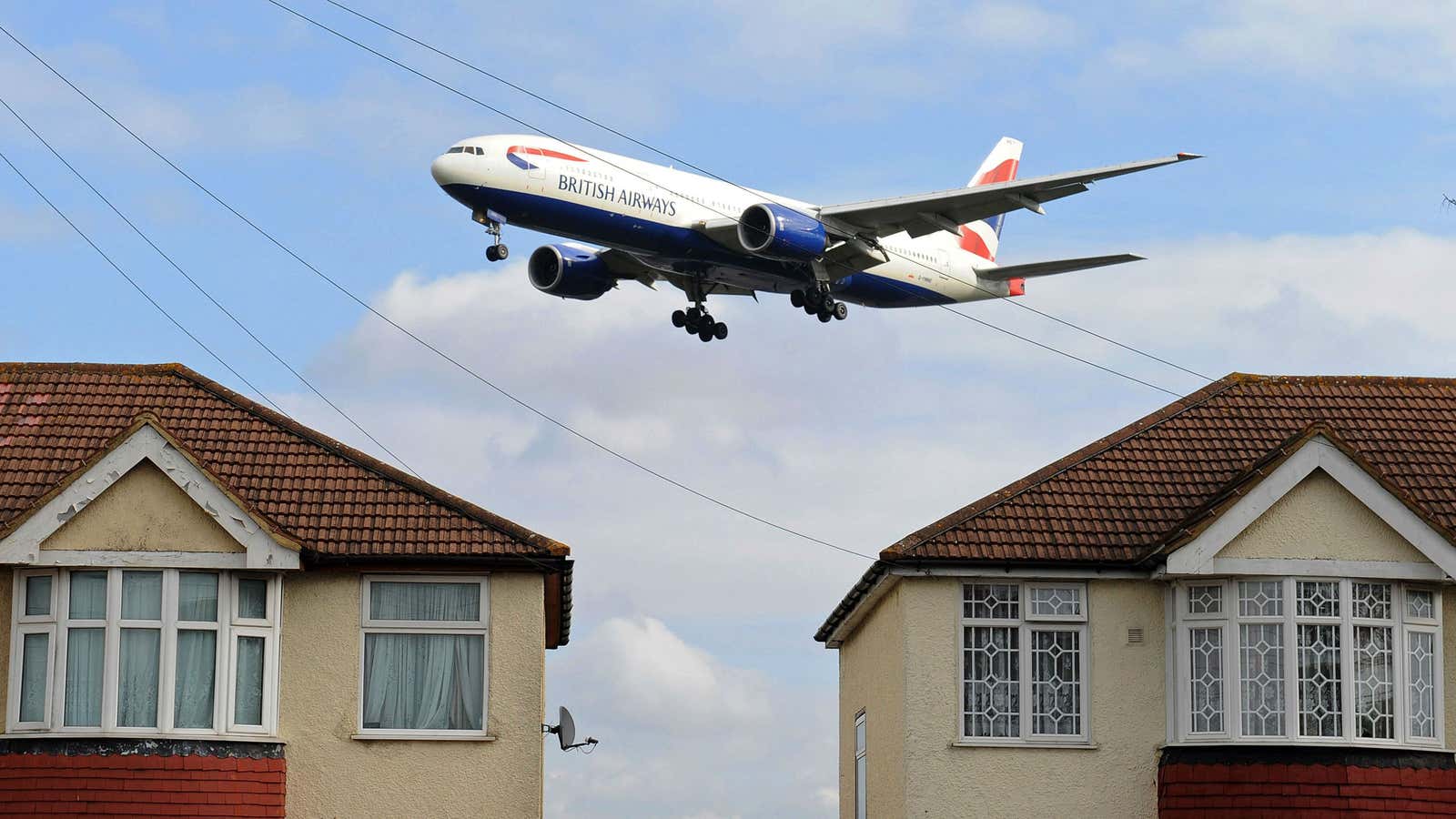This article was updated at 12:30pm EST on March 5.
Frequent fliers are miffed that airlines are still charging them extremely high fuel surcharges despite the fact that the price of oil, for now, is quite low.
A rule change from the US Department of Transportation tried to solve that problem by forcing airlines to tie fuel costs to the actual price of oil, and be transparent about the costs that make up fares. But The Wall Street Journal’s Scott McCartney noticed that most airfares still contain exorbitant fuel surcharges—it’s just that airlines are calling them something else, like “carrier-imposed charges,” “airline surcharges,” and so on.
By avoiding the term “fuel,” and acknowledging that they are fees the company itself (and not the government) is affixing, airlines can dodge the new DOT rules.
Quartz investigated the issue in November, finding that a Delta flight from Los Angeles to London charged $458 in fuel surcharges—called simply “YR” on the receipt—almost half of the total fare.
The airlines argue that they currently don’t price tickets based on costs of items like oil. In a January conference call, American Airlines CEO Doug Parker said, “What we believe is that pricing is tied to demand… and that’s what we should base our pricing on and not based on our cost structure.”
Except, when the price of oil rose, so did airfare. Airlines don’t seem to adjust the charges back down when oil gets cheaper. The surcharges, whether they’re called “YR” or “carrier-imposed fees,” are arbitrary numbers the airlines dream up to maximize profits and stay competitive in the marketplace.
This is especially galling for travelers with frequent flier miles, who still get charged these masked fuel fees on top of the points they redeem for free or cheaper airfare. That doesn’t sound like much of a reward.
The lobbying group Airlines for America, which spoke on behalf of several major airlines, told WSJ that, “surcharges enable airlines to cover their costs, just as any other business seeks to do.”
Update: When asked why airlines increase these fuel surcharges when the cost of oil is high, but do not decrease the charges when the cost of oil is low, Airlines for America told Quartz: ”While fuel prices remain historically high, recent declines are enabling airlines to continue to pay down debt, enhance creditworthiness to minimize service/job impact of future downturns, acquire new aircraft, refurbish airport check in areas/lounges/gates, add seats to the schedule, initiate new routes, reward employees though profit sharing and boost staffing levels.”
British Airways, one of the airlines that have changed the name of its fuel surcharges, declined our request to comment on the issue.
Now, the pressure is on. Many have criticized the DOT’s unwillingness to police the issue, and everyone from US Senators to consumer advocacy groups is calling for the government to clamp down and investigate high ticket prices.
